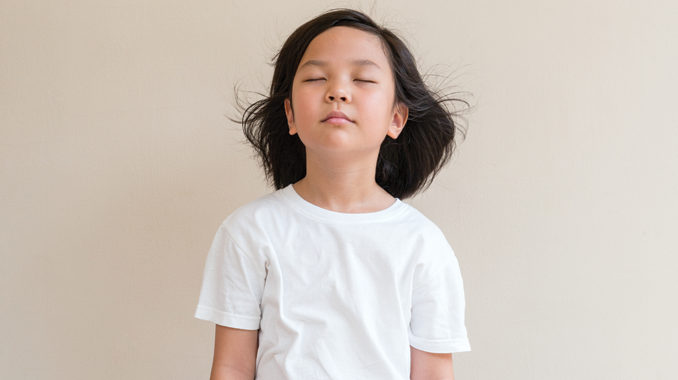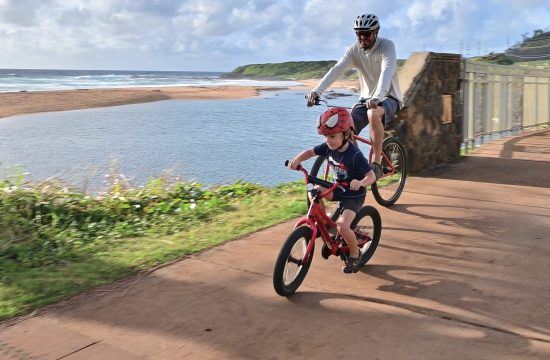Your child may feel “butterflies in his tummy” if he has a big event coming up such as an important test, a piano recital or even the first day of school. Feeling nervous is normal when kids are facing performing or speaking in front of a group of people, going to an upcoming dentist or doctor appointment, or trying to meet the pressure to do well on a test or at a sporting event. Many adults find themselves feeling nervous for similar events at work or in the community. Even though nerves are common, parents can help kids calm the butterflies and be successful.
Model calming behavior
Watching our child battle nervous feelings can be difficult for us parents—and even may cause us to feel anxious and worried ourselves. Kids can sense this and may grow more panicked as a result. Model calming behavior to your child. Speak in a calm voice, try not to rush and do keep your chit chat positive and encouraging.
Prepare and discuss
Prior to the big day, discuss what your child can expect. Spend time talking about the event a few days before. Allow them to ask questions and understand what to expect throughout the process.
Relaxation techniques
If you find your child is nervous often, sit down ahead of time and discuss some relaxation techniques that can be helpful in calming butterflies when they arise. Some relaxation techniques may include to take slow deep breaths and to pretend the child was somewhere else, stretching, reading a book, sipping a favorite drink, listening to music or talking to a friend. Many kids find physical activity relaxing. Encourage your child to take a short walk or jog, do jumping jacks, shoot hoops or play on the swing set. These activities will help your child release some nervous energy. Once your child has found a relaxation technique that works for him, he will have a tool in his back pocket when nerves arise.
While some nervousness is normal in children, kids may suffer from extreme anxiety that negatively affects their day-to-day lives.
Visualize and problem solve
If your child is nervous about an upcoming recital, performance or game, have her sit still, close her eyes and visualize each step of the upcoming event and how it will go. Picture a positive outcome with everything going smoothly. During the visualization process, address any obstacles your child may foresee. Problem solve with your child how she can overcome any of the challenges she may be worrying about.
As the big day approaches, set your child up for success with a good night’s rest and a healthy diet before the event. This will help him feel he is at his best when the butterflies arrive. Explain to your child that even adults get nervous about situations and these feelings are normal. Children tend to feel more secure in new situations when they know they have your support and understanding along the way.
Symptoms of anxiety in children
While some nervousness is normal in children, kids may suffer from extreme anxiety that negatively affects their day-to-day lives. If your child is experiencing the following symptoms, it may be time to seek additional help:
Children with extreme anxiety may “act out” with tantrums, refusal to do typical activities and generally disobedient behaviors.
Excessive and extreme worry about normal, everyday activities causes him to miss out on events at school or with friends. (KidsHealth.com)
They may be restless, have difficulty concentrating, have trouble sleeping and experience irritability.
They also may experience physical difficulties, such as muscle tension, frequent urination, stomachaches, difficulty swallowing and headaches. (VeryWell.com)
If you believe your child may have an anxiety disorder, seek professional help for an official diagnosis and support. In the meantime, continue to be supportive and patient with your child and let him know you will help him work through these challenges.








